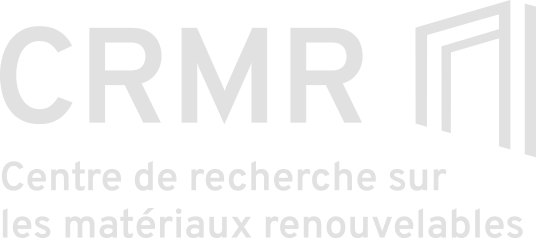Participation de Assira Keralta au «Forest Products Society Annual International Conference»
Assira Keralta, étudiant au doctorat en génie de bois et matériaux biosourcés, sous la direction de Véronic Landry et Julien Chamberland, a participé au «Forest Products Society Annual International Conference», tenue du 6 au 8 juin 2023 à Morgantown, West Virginia, USA, afin d’y présenter son projet de recherche qui porte sur «la stabilisation du bois à partir du perméat d’ultrafiltration du lactosérum».
Ce fut une excellente occasion pour partager ses résultats de recherche via une affiche à l’échelle internationale et élargir ses champs de compétences et développer ses réseaux de contacts en échangeant avec divers intervenants, grâce au programme d’aide financière de mobilité étudiante du CRMR et au Bureau international de l’Université Laval, AÉLIES.
Bravo à Assira Keralta et nous vous souhaitons beaucoup de succès dans votre carrière de recherche!

Titre de l’affiche: New technology for wood stabilization from whey ultrafiltration permeate
Résumé: Numerous technologies have been developed to increase the dimensional stability of wood and strengthen its resistance to microorganism attacks. These technologies allow to increase the service life of the wood material as well as its outdoor use in an environment subject to strong variations of climatic conditions. This project consists of developing a new technology for wood stabilization using local raw materials: a mixture of whey ultrafiltration permeate (a co-product of whey rich in lactose) and carboxylic acid from the whey ultrafiltration permeate is impregnated into the wood via vacuum impregnation and esterified in the wood by heating. The dimensional stability, the stability of the impregnations in the wood and the density of treated samples are determined. The resistance to fungal attack, hardness, abrasion resistance, bending strength, modulus of elasticity as well as the degradation kinetics during accelerated aging and in real life aging tests are determined. In order to extrapolate this new biobased technology to several native species, the wood of trembling aspen (Populus tremuloides), sugar maple (Acer saccharum), white pine (Pinus strobus) and black spruce (Picea mariana) are used during this project.

